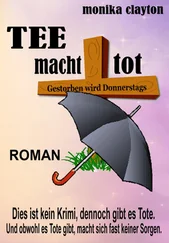A funny little scene, of course, not even the twins on the steps on the other side of the field can resist smiling just a little.
“You said it. Stipplo,” Solveig establishes later. “And then it happened.”
“Nah, it was you,” says Rita.
“I heard you, Rita. Don’t even try.”
Rita suddenly gets angry. “Yes, but just imagine if you would shut up! IMAGINE if you would stop getting involved in things. It just gets screwed up!”
Tobias, within hearing distance, closes in with quick steps. Rita sees but does not stay and wait, gets up and leaves. Solveig gets up as well, shilly-shallies a brief moment as if standing between two fires but then follows after Rita. Waves to Tobias, “Be back soon.” Tobias waves, calls out something friendly, “See you,” then remains standing at a loss before he slowly walks off in a different direction to return when the twins are back.
Tobias stands and watches: the twins heading up the steep path to the hill on the First Cape. To the house, the overgrown garden that will be tended by a family by the name of Backmansson who will eventually move in there. But still, a short while, a few years, a place for dreams, utopias… “They have a game, the Winter Garden,” the silver ball in the middle of the tall grass, overgrown rosebushes, reflecting light in the middle.
Rita first on the path, Solveig a little way behind. Rita who is in a hurry, Solveig trying to keep up with her.
Because also: those children… A shadow falls over them. Which Rita tries to escape, by breaking free of her sister, separating herself. Rita, suddenly, how she turns around and bellows, “I want to be alone. Do you have to follow me around all the time?”
Solveig flinches, stops. Rita who continues, upward, upward.
Still Solveig, she does not want to stay in the shadows either. Or shadow and shadow, maybe the grandiose just was not for her—because one difference among many, which starts presenting itself between the twins during this time as well, is that Solveig broods less, is maybe a bit slower but more here and now. But quite simply: does not want to be left behind, alone.
“Rita, wait!” And Rita still hears, regrets it. Waits for her sister and when Solveig has caught up with her the siblings walk the last bit like two friends, arms around each other.
•
“They have a game, the Winter Garden.” A game with its own language, like a separate world, a dreamworld, a utopia. With its own rules, its own language. The hacienda must be built .
Beautiful. But: it fades. Lacking the energy to maintain it, or force&resistance. The cursed ones . The eyes of others that become their eyes. Rita, Solveig frozen in time. Rumba tones, stone foundation, an unexplainable threat hanging in the air around them. Another story that is taking over all the time.
And yes, there comes Bengt. Who does not spend very much time with his siblings anymore, or at all, with anyone. Has started speaking again, but does not say very much—on the other hand, it was always like that. And soon, rather soon too, he will pretty much leave the sketch book altogether to become oneofthose teenagers for real. One with bags of beer, flower power cap on his head, to attract “women”—girls from the District and so on… who in some way will actually flock around him, for a while. But Bengt becomes stuck there, so to speak, the beer, et cetera… drifts here and there, one who comes and goes, things with him go to hell in a handbasket, he becomes nothing. And many years later, 1989, then he is around thirty-five, he is completely dried up, kaput. Comes “home,” to the cousin’s property and ends things. Also there, in that cursed cousin’s house. Maybe a logical fate—
A sad story, a story about the unnecessary.
Tobias who stands by and watches. Remembers “Karin” too, not often but sometimes. Her desertion, and his. The baroness who soon after the catastrophe said confused, stammering: “That is what you do. First. Instead of doing what you should be doing. Go to the city with ‘Astrid’ ”—that is the cousin’s mama’s real name, which only the baroness has ever used—“and buy things.” As if it would make things easier. Art supplies for Bengt, a radio cassette player. Yes, it is “Astrid” who suddenly wants it but it is the baroness who pays for it. She tells Tobias about Astrid who had a tin can filled with coins in her authentic checkered milkman shopping bag, which she had insisted on taking with her on their visit to the city; she had suddenly taken the can out in the appliance store and opened the lid and poured the contents out on the counter. “Is this enough?” With tears in her eyes, and the baroness explains that it was first in that moment that she understood how, behind the cousin’s mama’s calm, sorrowful façade, such a daze had been hidden, that she herself had fallen silent. And in some way also understood that she should do something. Not just for Bengt, but for everyone, for everything. Those children, so defenseless. But at the same time she realized the opposite. She could not, cannot—has enough problems of her own: Eddie de Wire and the guilty conscience about her own shortcomings, everything that went wrong.
The cousin’s mama who had stood in the shop like a child, chasms that had opened for the baroness. But the only thing she had been capable of doing was collecting the coins and getting out her checkbook and paying for that gadget—at the same time as she hated herself, her checks, her money, her possibilities.
Everything you should have done but did not while there was still time. “Time is the time we do something else, Tobias,” the baroness had said to Tobias on the veranda and said that there was a poem that went like that which had suddenly popped into her head and Tobias never hated her like he loved her in that moment.
•
“WHERE IS EVERYONE? I WANT TO PLAAY!” Doris out in the yard again, had become a bit bored with just the cousin’s mama and the crosswords in the kitchen. And the music: I go up to the mountains with my lonely heart —a pop song of the day as good as any other, which she hums where she is standing there on the steps, looking around with a hardtack sandwich in hand.
“WHERE?” Doris yells. Deadly silence. No one answers Doris. But then Doris catches sight of Rita and Solveig and Bengt on the hill on the First Cape.
“I’m comiiing!” And Doris heads off in the direction of the path that leads up to the hill. But no one stays there and waits for her. Bengt disappears and Rita and Solveig make their way down on the other side, leaving the garden and the house that will soon be occupied by others: let’s get out of here as they say in the District.
Enough of that. But also, enough of the twin-unity. What happens happens there even though no one notices until it is impossible to hide it any longer. A crack that becomes a sore that is widened until it can be seen by day, red and gaping. Doris starts running up the hill.
Rita and Solveig walk down, as said. You can see them strolling down the hill, out of Doris’s sight, leaving the garden and the house that will soon be inhabited by other people, let’s get out of here .
Lose yourself. Because what you are, have been together, is not good enough.
And you have started hating what you are .
The game. The Winter Garden, on the hill. Can be determined. Silly. Realized. The utopia. More fantasy was needed than what they possessed in order to make the game, which was really never a game but an own world, real—a possibility. Well, been there done that and no one there is interested in witnessing the development of the fall, from A to B in that way.
Читать дальше











